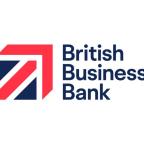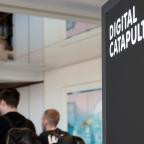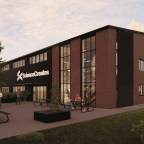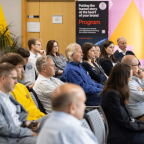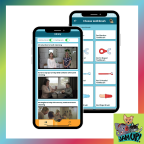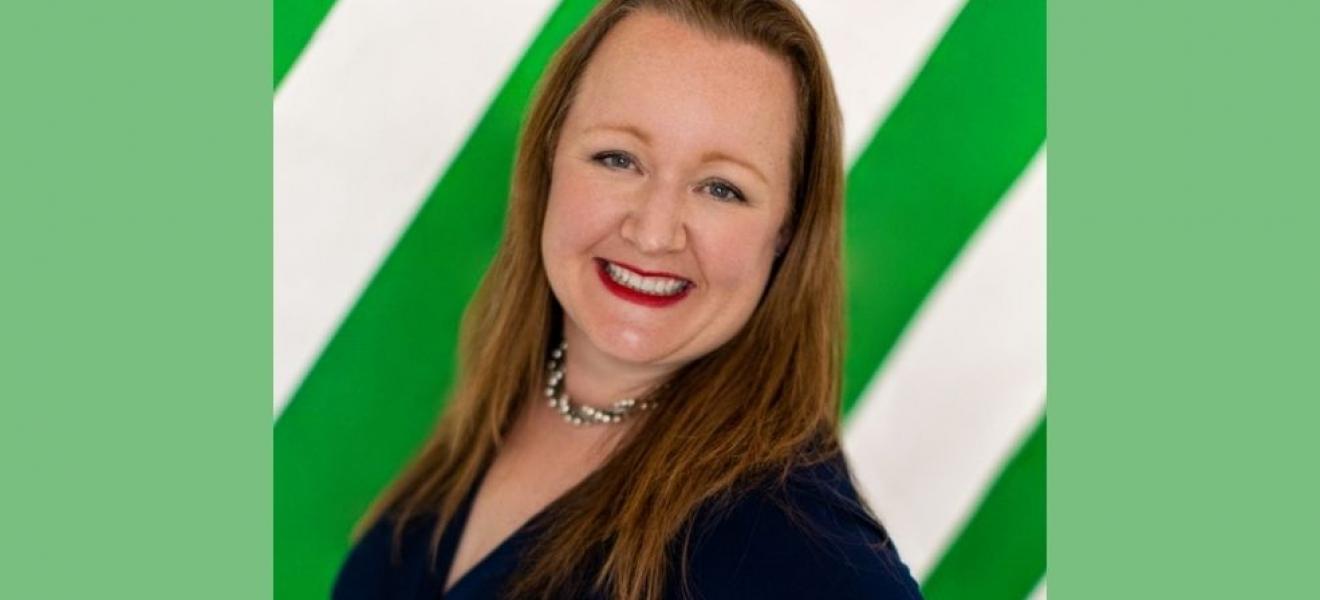
Lindsay Lucas: my career in software engineering
A guest article from Software Solved.
To celebrate International Women in Engineering Day, we spoke with our Managing Director Lindsay Lucas who shared some enlightening stories about her career path. A natural curiosity combined with inspirational figures in her family and a fascination into how things are put together and how they led to her career in software engineering.
Exposed to and surrounded by a family with roots firmly planted within engineering, her grandfather and great grandfather owned a knitting factory where they maintained all the machines. Lindsay’s father works in the tech side of the food industry while her uncle went into training aircraft engineers. This impressive generational heritage, along with a love and natural aptitude for physics, laid down a firm foundation for an instinctively driven career path. She strongly advises any young woman considering following in her footsteps today to “do it” and “network”.
We asked Lindsay a selection of questions about her software engineering career to date.
What inspired you to start a career in engineering?
I have always had that curiosity about how and why things worked and I enjoyed creating things, so engineering seemed an obvious choice. Maths was never my favourite bit, but it is quite important to develop a good understanding, but realise you don’t have to be a maths genius. I studied general engineering and management, giving me a founding principle across civil, mechanical, and electrical. This helped me to choose where I specialised and when it came to doing my Masters, I chose Electrical Engineering
What was your first job after university?
Following university, I was temping for an ISP in reception, they liked me and offered me something in customer service and then created a role for me retaining customers. For 10 years I held several positions within the company where I spotted opportunities and senior people encouraged me to go for the roles. I saw all areas of the business while in the role as a PA for the Ops Director, Development Director and Sales & Marketing Director, plus I took on the Office Manager role. It gave me a fundamental grounding and insight into how a business runs by following the kinds of decisions and conversations that they were having at that level. I’m very grateful for them spotting something in me that I wasn’t necessarily self-aware enough to spot in myself. They gave me the confidence to step forward and say, “count me in”.
What challenges have women faced in the engineering world, did you encounter any?
As a qualified female engineer, the main challenge I encountered was when people at university said female engineers are hot in demand and people are wanting to employ them. That may well have been true in the rest of the UK but within the Southwest, they weren’t quite ready for me. I left out my Master’s on my CV because people were telling me I was overqualified, an opinion that it was all theory and not practical. Another challenge came 20 years ago after applying for an engineering manufacturing role, I was told I would be a distraction because of my gender.
The software engineering sector has been very different, more inclusive, and more encouraging of diversity. I have never felt my gender was a problem, if anything my emotional intelligence has helped me get the best out of people and read situations well.
What tips would you give to young women (or your younger self) who may be considering engineering as a career choice/study option?
Do it! When I studied engineering over 20 years ago, I was one of about four females in the entire year group. The guys in the group were incredibly supportive and very inclusive. There was a bit of banter going on, but the same sort you’d have amongst friends in the pub, never malicious. I’d encourage any young woman to study engineering. If you have a curiosity about how/why things work or a desire to play a part in creating amazing things, then you’ll love it. My number one tip would be to start building your LinkedIn network as early as university. I’m connected with people from my university and school, they’ve gone on to do some amazing things. Another tip is to push yourself out of your comfort zone, stay curious and listen. Don’t jump to a solution before you understand the need and keep investing in your development.
What are the key lessons you have learnt throughout your career journey?
I learnt a lot about myself and what I enjoyed doing. I think that was one of the things that helped me just to understand me a little bit better and where my preferences were so that when I then started growing my career, I knew the kind of roles that I wanted and suited me. I was lucky along the way to have some really good managers who saw things in me and gave me the encouragement to go for opportunities.
The theme for this year’s International Women in Engineering Day is #EngineeringHeros, who is your hero and how do they inspire you?
Ada Lovelace is my #EngineeringHero. She was an incredible woman who pioneered computer programming in an era where it was socially unacceptable for a woman to do such things. Despite all of that she followed her passion, her curiosity, and her fundamental belief that more was possible.
Why do you think there is a shortage of women in engineering?
I don’t think it’s seen as a particularly sexy environment. When I’m asked what I do, the reply is often “I don’t get tech”. I think it’s still viewed as a male-dominated environment which could be off-putting. I also think that there have been fewer role models for young women to follow into engineering or mentors who can support them. Thankfully, this has started to change over the last few years, with initiatives like Inspiring Girls, Girls Who Code and STEM Ambassadors. We have several women in our business, myself included, who are getting involved in some of these initiatives to help provide role models and mentors.
What do you feel the industry and educators can do to showcase and promote engineering roles to women?
I think as employers we have a role in helping educators understand the breadth of skills and roles on offer across the industry so that young women understand what is available, as it’s not just coding. Many other roles are on offer from project management, testing, finance, HR and more. We need to be connecting young women to role models, mentors, and that’s where engaging with organisations like the STEM Ambassadors can offer a breadth of resources available to educators. I also think that engineering and particularly coding and IT skills should be much higher up on the curriculum. I feel schools are somewhat behind in this area, failing to equip young people with the technical skills they will need in this fast-paced digital economy.
What do you love the most about your job now?
The variety, the people, the team, the clients, that sense of satisfaction knowing that you’re playing a part in helping businesses to grow, thrive and compete through the great advice and tech that we offer. I genuinely love my job and get to work with some incredibly talented people. I get real enjoyment from seeing the changes within people in the team, developing, and creating. Where they progress, they become more empowered. We have conversations that we wouldn’t have had six months ago. There’s a moving forward of professional maturity of what they’re bringing to the table, that’s the bit I love to see.
What is your proudest achievement throughout your career to date?
Coming back to work following maternity leave and within 12 months being appointed as Managing Director has to be up there personally, but I’m equally proud of the incredible culture we have created here at Software Solved, when you hear people say, “I genuinely love working here” and “I’ve never experienced a culture like this.” Software Solved genuinely cares about people, putting them first, it’s not just marketing fluff, we live and breathe it. Since my appointment, hearing that makes me incredibly proud.
What’s the key message you would like to get across for International Women in Engineering Day?
Diversity and inclusion across teams bring better business growth and sees more dynamic conversations take place to keep things moving forwards.
So, to employers I’d say, if you want diversity help encourage future talent by getting involved in things like STEM Ambassadors as well as helping to educate the educators.
To young women out there considering a career in engineering, do it! Software engineering is imaginative, creative and you can make a real difference every day. Have self-belief: If something is driving you, if it is something fundamental, then follow it and nothing should get in your way.
Useful links for further info:
• https://www.inwed.org.uk/https://www.wes.org.uk/ • https://www.techsouthwest.co.uk/stemm/ • https://www.stemwomen.co.uk/ • https://www.hiremorewomenintech.com/
Useful stats:
• https://www.engineeringuk.com/media/232298/engineering-uk-report-2020.pdf • https://www.wes.org.uk/content/wesstatistics • https://www.engineeringuk.com/research/engineering-uk-report/at-a-glance-2020/ • 170 Software Engineering courses in the United Kingdom: https://www.idp.com/india/search/software-engineering/all/united-kingdom/#:~:text=170%20Software%20Engineering%20courses%20in%20United%20Kingdom%20%7C%20IDP%20India • More than one million women are working in core STEM roles across the UK: https://www.prospects.ac.uk/jobs-and-work-experience/job-sectors/engineering-and-manufacturing/opportunities-for-women-in-engineering



